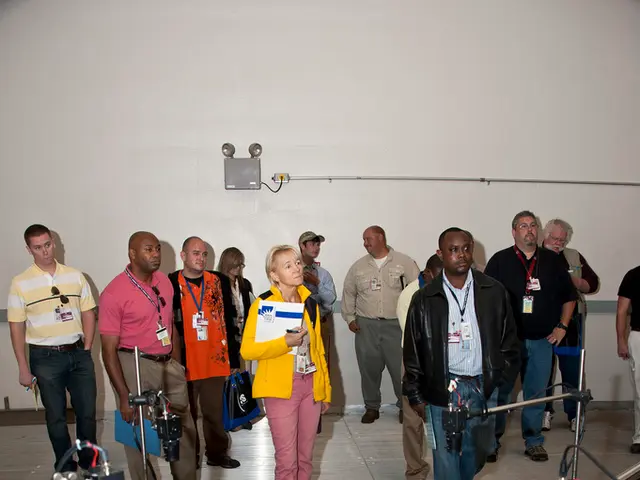YouTube to Implement AI-Based Age Verification System for Users in the United States in Trial Runs
YouTube, a platform owned by Google, has introduced an AI age verification system in the U.S. The system, launched on August 13, 2025, employs machine learning to estimate users' ages by analyzing various signals such as video watch history, search history, and account behavior [1][2].
The system works only when viewers are logged into their accounts. It differentiates between adults and minors, even if the user's account states a different age. Initially, the system will be tested on a small set of U.S. users before a broader rollout [2][5].
Implications for User Privacy
The use of AI for age estimation raises several privacy concerns. The system relies on extensive data collection about users' viewing habits and account activities, which some view as a form of "mass surveillance" [3]. While YouTube does not require ID uploads for most users, those incorrectly flagged as minors can verify their age using a government-issued ID, credit card, or selfie. This option may raise further privacy concerns [3][4].
There is growing concern about the level of data collection and control involved in the process, which could lead to more discussions around privacy and data protection [3].
User Experience and Impact
The system's implications for users include age restrictions, digital wellbeing tools, and personalized advertising. Users inferred as under 18 will face restrictions on viewing age-restricted content, personalized advertising, and certain features like earning from gifts on live streams [3][4]. The system will also activate digital wellbeing tools for minors, such as screen time reminders and specific content limitations [3][4].
However, the system aims to enhance minors' online safety while sparking debates about privacy and data usage. For instance, YouTube does not show ads tailored to individual tastes if a viewer is under 18 [1].
The Broader Context
Some services, such as YouTube, have been increasing their efforts to verify users' ages, while others argue that the responsibility should primarily fall upon Apple and Google's smartphone app stores [6]. Digital rights groups, such as the Electronic Frontier Foundation and the Center for Democracy & Technology, have expressed concerns that age verification could infringe on personal privacy and violate First Amendment protections on free speech [6].
The political pressure to verify ages on websites has increased since June, following a U.S. Supreme Court ruling on a Texas law aimed at preventing minors from accessing pornographic content online [7]. However, Apple and Google have resisted this position [7].
YouTube, which has been owned by Google for nearly 20 years, is proud to be at the forefront of introducing technology that delivers safety protections while preserving teen privacy [8]. The company emphasizes that it is committed to creating a safe and friendly environment for all its users.
[1] - Source [2] - Source [3] - Source [4] - Source [5] - Source [6] - Source [7] - Source [8] - Source
Read also:
- Industries Under Jeopardy Due to Multi-Accounting: Prevention Strategies Revealed in 2024
- Web3 Esports undergoes transformation as Aylab and CreataChain collaborate for a radical change
- Latest Tech Highlights: Top Gadgets of March 2025
- Agencies within the United States and international partners release recommendations on conducting inventories for operational technology assets







